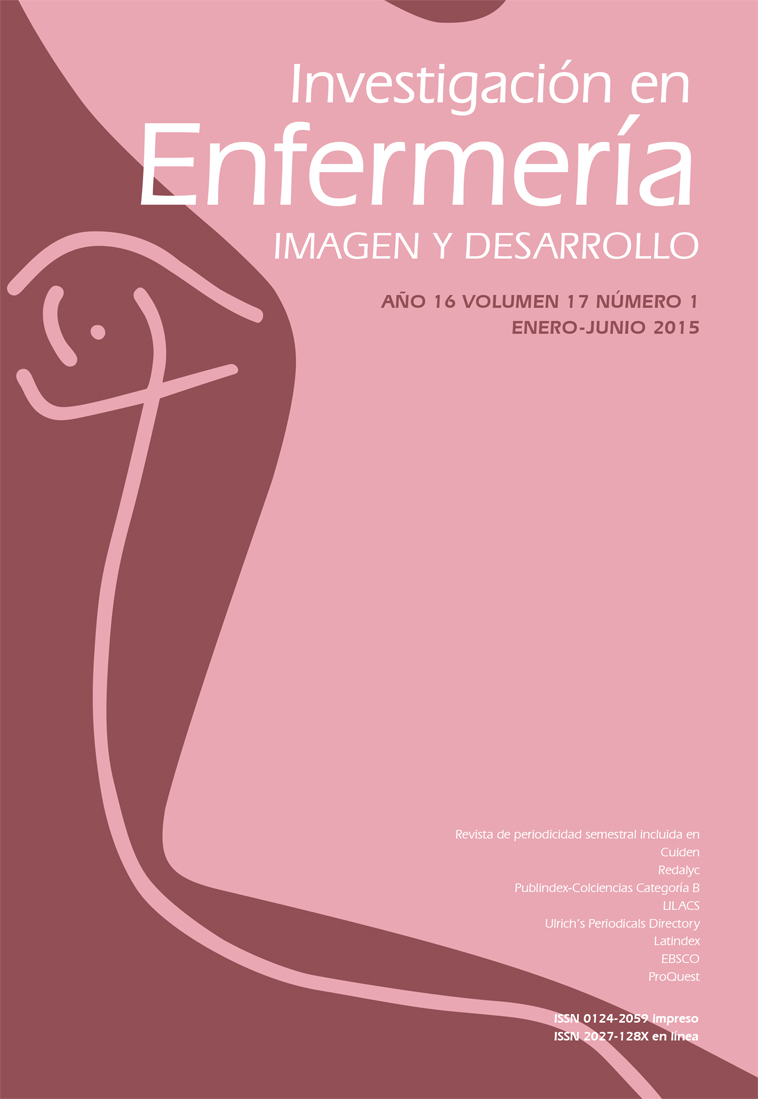Abstract
Objective: To develop the characterization survey to define the care of a person withchronic disease, in order to use it in the Colombian context. Method: Methodologicalstudy that determined the basic information required to assess a person with chronicdisease after reviewing a previous proposal of a characterization tool and as part ofthe program for reducing the burden of chronic disease in Colombia. It was developedin three phases:1) Review of the literature related to the provision of care for peoplewith chronic disease 2) definition of the characterization survey for the care of a personwith chronic disease, which was named GCPC-UN-P, and 3) Apparent validity,which consisted of a field trial with 1850 people with chronic disease, and validitywith experts. Results: It was obtained a characterization survey GCPC-UN-P of 22items that ask about three dimensions: patient conditions and socio-demographicprofile, perceived burden and support, and communication media. Regarding theapparent validity all items are evaluated as understandable, clear, coherent, adequate,relevant and essential. Conclusions: GCPC-UN-P has the necessary survey for thecharacterization of a person with chronic illness in the Colombian context variables.The journal Investigación en Enfermería: Imagen y Desarrollo is registered under a Creative Commons Attribution 4.0 International Public License. Thus, this work may be reproduced, distributed, and publicly shared in digital format, as long as the names of the authors and Pontificia Universidad Javeriana are acknowledged. Others are allowed to quote, adapt, transform, auto-archive, republish, and create based on this material, for any purpose (even commercial ones), provided the authorship is duly acknowledged, a link to the original work is provided, and it is specified if changes have been made. Pontificia Universidad Javeriana does not hold the rights of published works and the authors are solely responsible for the contents of their works; they keep the moral, intellectual, privacy, and publicity rights.
Approving the intervention of the work (review, copy-editing, translation, layout) and the following outreach, are granted through an use license and not through an assignment of rights. This means the journal and Pontificia Universidad Javeriana cannot be held responsible for any ethical malpractice by the authors. As a consequence of the protection granted by the use license, the journal is not required to publish recantations or modify information already published, unless the errata stems from the editorial management process. Publishing contents in this journal does not generate royalties for contributors.


